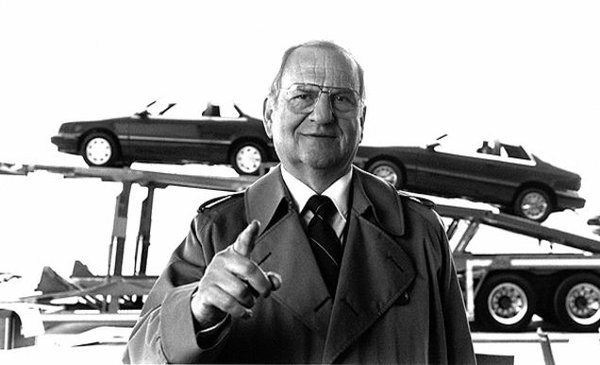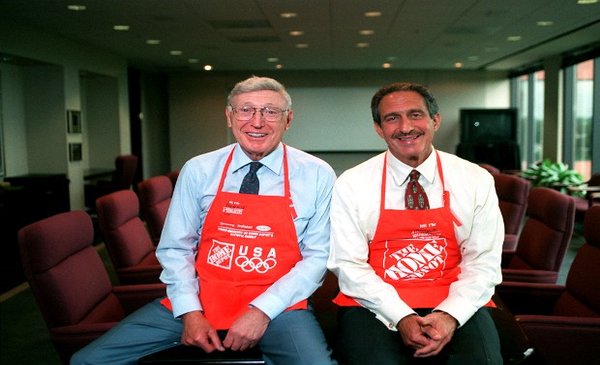Abraham Lincoln once said, “You must draw on language, logic and simple common sense to determine essential issues and establish a concrete course of action.” Unfortunately, business executives often leave their common sense in the parking lot when they come to work.
Common sense is wisdom that is shared by all. It’s something that registers as an obvious truth to a community.
Simple ideas tend to be obvious because they have a ring of truth about them. But people distrust their instincts. They feel there must be a hidden, more complex answer. Wrong. What’s obvious to you is obvious to many. That’s why an obvious answer usually works so well in the marketplace.
One of the secrets of the buzzword gurus is to start with a simple, obvious idea and make it complex. A Time magazine commentary on a book by leadership consultant Stephen Covey captured this phenomenon: “His genius is for complicating the obvious, and as a result his books are graphically chaotic. Charts and diagrams bulge from the page. Sidebars and boxes chop the chapters into bite-size morsels. The prose buzzes with the cant phrases–empower, modeling, bonding and agent of change–without which his books would deflate like a blown tire. He uses more exclamation points than Gidget.”
If you look up the dictionary definition of “common sense,” you discover that it is native good judgment that is free from emotional bias or intellectual subtlety. It’s also not dependent on special technical knowledge.
In other words, you are seeing things as they really are. You are following the dictates of cold logic, eliminating both sentiment and self-interest from your decision.
Nothing could be simpler.
Consider this scenario. If you were to ask ten people at random how well a General Motors’ Cadillac would sell if it looked like a Chevrolet, just about all they would say is, “Not very well.”
These people are using nothing but common sense in their judgment. They have no data or research to support their conclusion. They also have no technical knowledge or intellectual subtlety. To them, a Cadillac is a big, expensive car and a Chevrolet is a smaller, inexpensive car. They are seeing things as they really are.
But at General Motors, rather than seeing the world as it is, those in charge would rather see it the way they want it to be. Common sense is ignored and the Cimarron is born. Not surprisingly, the car didn’t sell very well. (And we’re being kind.)
Was this a lesson learned? Apparently not. GM came back with the Catera model, another Cadillac that looks like a Chevrolet. Like its predecessor, it didn’t sell very well because it made no sense. You know it and I know it. GM doesn’t want to know it.
As Henry Mintzberg, professor of management at McGill University, said, “Management is a curious phenomenon. It is generously paid, enormously influential and significantly devoid of common sense.”
Another believer in the power of common sense was Leonardo da Vinci. He saw the human mind as a laboratory for gathering material from the eyes, ears and other organs of perception–material that was then channeled through the organ of common sense. In other words, common sense is a sort of super-sense that rides herd over our other senses. It’s a super-sense that many in business refuse to trust. Maybe we should correct that.
It’s not only business executives that ignore simple common sense. Consider the complex world of economists, a group that works hard to outwit simple common sense.
There is nothing economists enjoy more than telling the uninitiated that plain evidence of the senses is wrong. They tend to ignore the human condition and declare that people are “maximizers of utility.” In econo-talk, we become “calculators of self-interest.” Economists believe that if we all have enough information, we will make rational decisions.
Anyone who’s been around the marketing world for a while realizes that people are quite irrational at times. Right now, we’re overrun by four-wheel-drive vehicles designed to travel off the road. Does anybody ever leave the road? Less than 10%, perhaps. Do people need these vehicles? Not really. Why do they buy them? Because everyone else is buying them. How’s that for “rational?” The world cannot be put into mathematical formulas. It’s too irrational. That’s the way it is.
Now some words about intellectual subtlety.
A company often goes wrong when it is conned with subtle research and arguments about where the world is headed. (Nobody really knows, but many pretend they know.) These views are carefully crafted and usually mixed in with some false assumptions disguised as facts.
For example, many years ago Xerox was led to believe that, in the office of the future, everything–phones, computers and copiers–would be integrated into a single system. (Bad prediction.) To play in this world, the company would need to offer everything. Thus Xerox needed to buy or build computers and other non-copier equipment to offer in this oncoming automated world.
Xerox was told it could do this because people saw the company as a skilled, high-technology company. This was a false assumption; people saw it as a copier company.
Twenty-five years and several billion dollars later, Xerox realized that the office of the future is still in the future. And any Xerox machine that can’t make a copy is in trouble. It was a painful lesson in technical knowledge and intellectual subtlety overwhelming good judgment.
Finally, some thoughts about a business school education, which seems to submerge common sense.
By the time students finish their first year, they already have an excellent command of the words and phrases that identify them as MBA wannabes. They have become comfortable with jargon like “risk/reward ratio,” “discounted cash flow,” “expected value” and so forth.
After a while, all this uncommon language overwhelms critical thought and common sense. You get the appearance of deliberation where none may exist.
In a visit to the Harvard Business School, billionaire Ross Perot observed, “The trouble with you people is that what you call ‘environmental scanning,’ I call ‘looking out the window.'”
To think in simple, common sense terms, you must begin to follow these guidelines:
— Get your ego out of the situation. Good judgment is based on reality. The more you screen things though your ego, the farther you get from reality.
— Avoid wishful thinking. We all want things to go a certain way. But how things go are often out of our control. Good common sense tends to be in tune with the way things are going.
— Be better at listening. Common sense by definition is based on what others think. It’s thinking that is common to many. People who don’t have their ears to the ground lose access to important common sense.
— Be a little cynical. Things are sometimes the opposite of the way they really are. That’s often the case because someone is pursuing his or her own agenda. Good common sense is based on the experiences of many, not the wishful thinking of some.
Executives should trust their common sense. It will tell them what to do.
The Blake Project Can Help: The Brand Positioning Workshop
Join us in Hollywood, California for Brand Leadership in the Age of Disruption, our 5th annual competitive-learning event designed around brand strategy.
Branding Strategy Insider is a service of The Blake Project: A strategic brand consultancy specializing in Brand Research, Brand Strategy, Brand Licensing and Brand Education





2 comments
Ted Grigg
September 28, 2007 at 11:34 am
Thank you for a thought provoking article.
I do see your point that “common sense” is a reflection of reality as seen by most people. But reality is not always as it appears to the masses. Getting at the truth takes considerable effort and often proves elusive. Why? Because decisions based on feelings trump common sense most of the time.
As managers, we attempt to make rational judgments trying to replace our feelings with hard objectivity.
But as human beings, we often rely unconsciously on our feelings seeking to support those feelings with research. That process is far from objective since we usually view external evidence through the lens of our feelings.
So just like the illogical choice made by consumers to buy cars they don’t need, managers also make illogical decisions.
Susan Gunelius
September 30, 2007 at 10:52 pm
To me, common sense is one of the most critical aspects of business and marketing. I talk about it all the time on Brandcurve and MarketingBlurb, and I was so glad to see your post about its importance here today! So often being “visionary” becomes more important than using common sense, particularly where new product development is concerned.
Comments are closed.